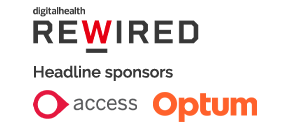Interoperability – What we can learn from the US

In 1871, Chicago, and in 1872, Boston, both had huge fires that swept through the cities. When other fire crews from outside the city came to provide assistance, they could not help because their hoses would not fit the hydrants used in those cities. In 1905, there was the Great Baltimore Fire and again fire crews from outside the city could not help because their hoses would not fit the couplings. American cities had more than 600 hundred different sizes and variations of fire hose coupling. That is an interoperability problem.
The experience led to a national standard, known as the Baltimore standard, for hydrant size and hose couplings; 2.5 inches; 64mm diameter. However, inertia remained. Conversion was slow and still remains incomplete. Over one hundred years after the Great Baltimore Fire, only 18 of the 48 most populous American cities are reported to have national standard fire hydrants. Hose incompatibility contributed to the Oakland Firestorm of 1991. Oakland’s hydrants had 3-inch (76 mm) couplings.
What makes such a seemingly simple technical solution so hard to get adopted? Well, I would suggest that it cannot be a technical problem and there must be other factors in play. Professor Bob Wachter gets to the heart of what the problem is when he wrote in his 2015 report for the NHS “Making IT Work; Harnessing the Power of Health Information Technology to Improve Care in England”
“Health IT entails both technical and adaptive change and that implementing health IT today is one of the most complex adaptive changes in the history of healthcare, and perhaps of any industry. Adaptive change involves substantial and long-lasting engagement between the leaders implementing the changes and the individuals on the front lines who are tasked with making them work.”
What he essentially said is that the only way to solve these problems is by everyone who shares the problem to be committed to co-producing the solution. Top-down defined solutions do not work, as witnessed in NHS IT programmes we have seen in England in the last 20 years.
For interoperability, this means; NHS England and all of its Programmes, Healthcare Standards Organisations (such as HL7, IHE, etc.), groups who define Record Standards – the PRSB -, CIOs, CCIOs, CNIOs from the service, and Social Care Professionals from Health and Social Care Providers, Health IT Professional Organisations, and system suppliers must come together to co-produce the solutions. This is vital as interoperability is an especially wicked problem and INTEROPen, recognizing this, includes all of these stakeholders. It is a mixture or public and private working together.
In the US, we have seen greater progress than in the UK where a combination of “carrot” and “stick” has created the conditions for more advanced interoperability and where we have seen far better public and private partnership. It has also been helped by having more than 10 years of a sustained, consistent strategy to get there. Since a few software companies formed Commonwell Health Alliance in 2013 to improve information exchange it has now grown to over 30 software vendors and will be one of the new Qualified Health Information Networks that will form the backbone of the US Trusted Exchange Framework and Common Agreement (TEFCA) created by the Office of the National Coordinator (ONC) to improve nationwide information sharing. This has been created through public-private partnership where the solution has been co-produced, underpinned by open interoperability standards such as HL7 FHIR.
At Digital Health Rewired this year, INTEROPen is running a Hackathon around UK FHIR Core, which contains the latest interoperability standards that are going to be used across the four nations. We will be testing these out with all the stakeholders over a number of clinical scenarios where teams made up from around 80 people from different system suppliers, NHS England etc. will be learning how to make these standards work solving real-world problems. Each team will then present in one of the theatres in the main hall towards the end of the 2nd day that any attendee at Rewired can attend. All attendees in the theatre will be able to vote for the best Hack and the winners will receive prizes. I am really looking forward to it and hope we can show through co-production and with the public and private sectors working together, we can drive progress forward in interoperabilty.
David Hancock – Director New Found Consulting Services Ltd
Vendor Co-Chair – INTEROPen


